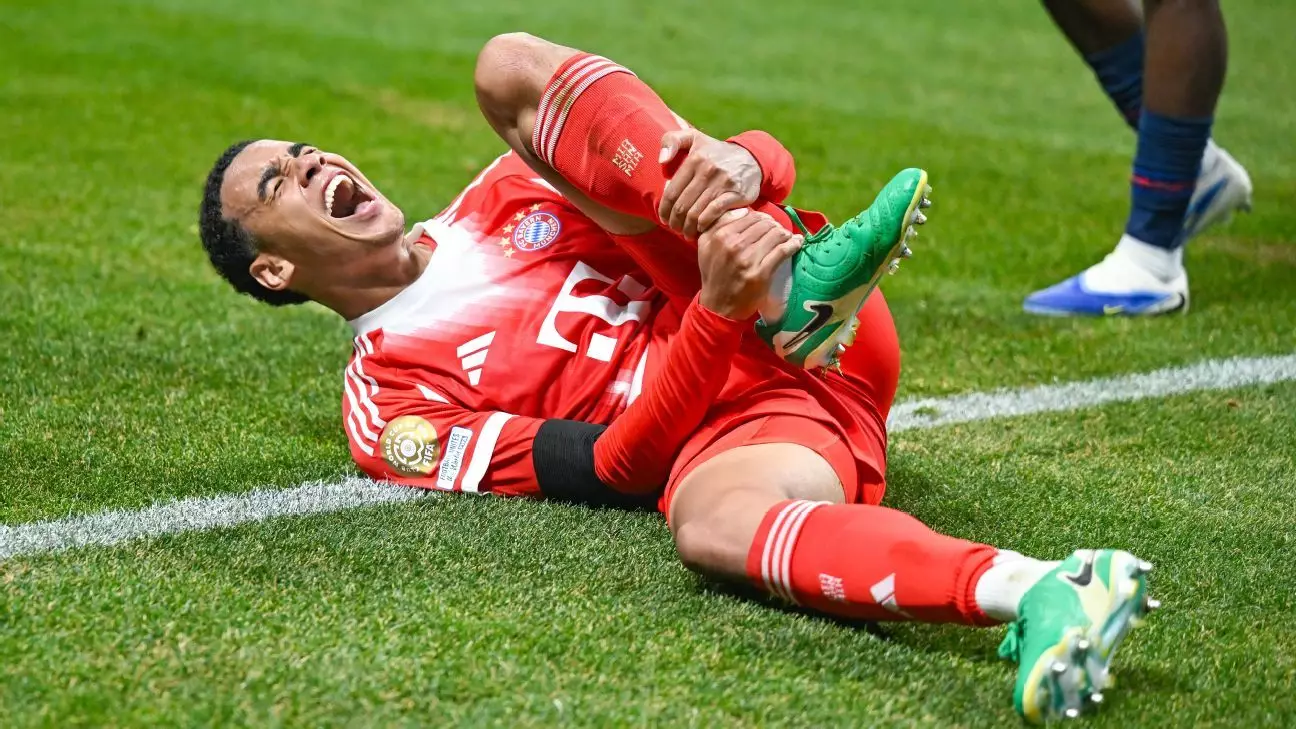Jamal Musiala’s recent injury marks a significant and disheartening chapter in his promising football journey. Suffering a fracture of the fibula accompanied by an ankle dislocation is no small matter; it signifies a serious setback with long-lasting consequences. Such injuries are not only physically painful but can also destabilize a young athlete’s career trajectory. The shockwaves extend beyond Musiala himself, resonating through Bayern Munich’s entire ecosystem, who now face the arduous task of recovery and reintegration.
This incident underscores the inherent dangers of football—a sport characterized by high-intensity collisions and relentless physical challenges. Musiala, despite his agility and skill, falls victim to the sport’s unforgiving nature. This injury is a stark reminder of the fragility of young talent and the unpredictable risks players face every time they step onto the pitch. The club’s assurances of support are heartfelt, but they cannot erase the loss of such a rising star’s momentum.
The Broader Meaning of Football Collisions and Player Accountability
The collision involving Musiala and Gianluigi Donnarumma opens a broader conversation about player safety and sportsmanship. Manuel Neuer’s critique of Donnarumma reflects a palpable concern about reckless plays and the importance of shared responsibility in avoiding injuries. Football, at its highest level, demands not only technical excellence but also a sense of fairness and respect among competitors.
Donnarumma’s challenge, which Neuer deemed unnecessary and risky, epitomizes the fine line between aggressive play and reckless disregard for opponents’ wellbeing. Such moments highlight the need for stricter enforcement of safety protocols and a cultural shift towards prioritizing player health over aggressive tactics. Football should be a showcase of skill and strategy, not a battlefield where young talents risk careers due to reckless confrontations.
The Cost of Athletic Excellence and the Human Element
Musiala’s injury also raises uncomfortable questions about the toll that professional sports impose on athletes. Behind the highlights and trophies lies a fragile human being vulnerable to injury, exhaustion, and psychological strain. The expectation to perform at peak levels can often overshadow concerns about long-term health.
Furthermore, this incident exemplifies the emotional and physical costs athletes endure, often in silent suffering. The club’s commitment to supporting Musiala is commendable, but it also shines a spotlight on the systemic pressures athletes face—pressure to excel, to take risks, and to recover quickly for the next game. It’s a sobering reality that even the most talented players are susceptible to the brutal, often unforgiving nature of football.
By critically examining this event, one must question whether current sporting environments do enough to protect their young stars or if they unwittingly encourage a relentless pursuit of victory at the expense of player wellbeing. This injury should prompt a reevaluation of safety standards, and perhaps, a renewed focus on protecting the human element that makes the beautiful game worth watching.

